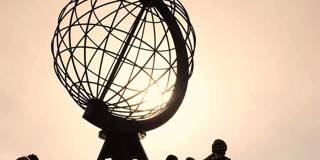Several key issues – US monetary policy, weak commodity prices, debt crises, and the like – are likely to affect the global economy in the year ahead. But the main longer-term risks are geopolitical, stemming from four sources: Russia, China, the Middle East, and cyberspace.
CAMBRIDGE – The end of the year is a good time to consider the risks that lie ahead of us. There are of course important economic risks, including the mispricing of assets caused by a decade of ultra-low interest rates, the shifts in demand caused by the Chinese economy’s changing structure, and European economies’ persistent weakness. But the main longer-term risks are geopolitical, stemming from four sources: Russia, China, the Middle East, and cyberspace.
Although the Soviet Union no longer exists, Russia remains a formidable nuclear power, with the ability to project force anywhere in the world. Russia is also economically weak because of its dependence on oil revenue at a time when prices are down dramatically. President Vladimir Putin has already warned Russians that they face austerity, because the government will no longer be able to afford the transfer benefits that it provided in recent years.
The geopolitical danger arises from Putin’s growing reliance on military action abroad – in Ukraine and now in Syria – to maintain his popularity at home, using the domestic media (now almost entirely under Kremlin control) to extol Russia’s global importance. Russia also uses its gas exports to Western Europe and Turkey as an economic weapon, although Turkey’s recent decision to source gas from Israel shows the limits of this strategy. As Putin responds to this and other challenges, Russia will remain a source of substantial uncertainty for the rest of the world.

CAMBRIDGE – The end of the year is a good time to consider the risks that lie ahead of us. There are of course important economic risks, including the mispricing of assets caused by a decade of ultra-low interest rates, the shifts in demand caused by the Chinese economy’s changing structure, and European economies’ persistent weakness. But the main longer-term risks are geopolitical, stemming from four sources: Russia, China, the Middle East, and cyberspace.
Although the Soviet Union no longer exists, Russia remains a formidable nuclear power, with the ability to project force anywhere in the world. Russia is also economically weak because of its dependence on oil revenue at a time when prices are down dramatically. President Vladimir Putin has already warned Russians that they face austerity, because the government will no longer be able to afford the transfer benefits that it provided in recent years.
The geopolitical danger arises from Putin’s growing reliance on military action abroad – in Ukraine and now in Syria – to maintain his popularity at home, using the domestic media (now almost entirely under Kremlin control) to extol Russia’s global importance. Russia also uses its gas exports to Western Europe and Turkey as an economic weapon, although Turkey’s recent decision to source gas from Israel shows the limits of this strategy. As Putin responds to this and other challenges, Russia will remain a source of substantial uncertainty for the rest of the world.